Events
| Name | organizer | Where |
|---|---|---|
| MBCC “Doing Business with Mongolia seminar and Christmas Receptiom” Dec 10. 2025 London UK | MBCCI | London UK Goodman LLC |
NEWS

Copper declined by 24 percent since Rio lobbed its bid www.news.mn
Rio Tinto’s bid to complete a takeover of Turquoise Hill Resources has received a boost after the most vocal opponents of the deal agreed not to vote at the shareholder meeting that will determine whether the USD 3.3 billion deal goes ahead.
Rio has owned almost 51 percent of Canadian listed Turquoise Hill for a decade but this year moved to acquire the remaining 49 percent as part of efforts to simplify the ownership structure of Mongolia’s Oyu Tolgoi copper mine.
Turquoise Hill owns 66 percent of Oyu Tolgoi but outsources management of the project to Rio, and that structure has triggered years of acrimony and distrust between the Mongolian government, Rio and minority shareholders in Turquoise Hill.
Two of the most vocal critics of Rio’s involvement in the Mongolian project over the past decade have been Sailingstone Capital Partners and Pentwater Capital Management; both of which have spent time as the second-biggest shareholder in Turquoise Hill and both of which have expressed dissatisfaction with Rio’s $C43 per share takeover offer.
But on Wednesday morning Australian time, Pentwater and Sailingstone agreed to withhold their votes at next week’s meeting of Turquoise Hill shareholders that will determine whether Rio’s bid is successful.
Pentwater and Sailingstone will instead exercise the rights offered by a quirk in Canadian mergers and acquisitions regulations, which allows shareholders in a target company to nominate their shares as “dissenting”.
The price received by dissenting shareholders is determined through a subsequent arbitration process that has no influence over whether the deal goes ahead.
In that sense, dissenting shareholders like Pentwater and Sailingstone take the risk that an arbiter may consider fair value for their shares to be lower than the $C43 offered by Rio, but they do so in the hope the arbiter will judge fair value to be higher than $C43.
On face value, Wednesday’s agreement appears to boost Rio’s chances of success at the meeting that will be held in Canada on November 8, because it eliminates two Turquoise Hill shareholders that appeared to be inclined to vote against the offer.
Rio originally offered $C34 per share when it first lobbed the takeover bid in March. Turquoise Hill shares traded as low as $C4.60 during the market rout of March 2020, but the stock recovered to average $C20.59 in the past year
Rio raised the bid to $C40 in August and $C43 in September, but proxy advisory firm Institutional Shareholders Services (ISS) has still told clients to reject the $C43 offer. Turquoise Hill shares were fetching $40.36 at the close of Canadian trading on Wednesday morning Australian time.
Copper was fetching $US3.49 per pound on Wednesday; prices for the red metal have declined by 24 percent since Rio lobbed its bid.
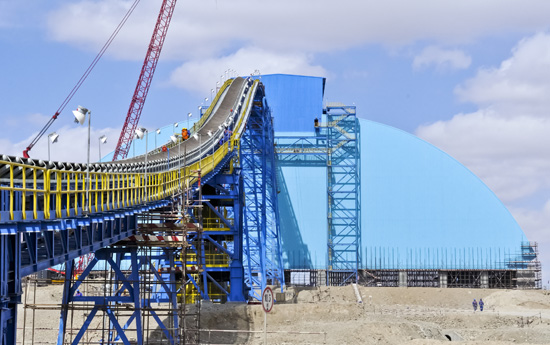
Mongolian fracas rumbles on for Rio Tinto as takeover deadline looms www.afr.com
London | Rio Tinto’s partner and takeover target, Turquoise Hill, is fighting a rearguard action to prevent the Mongolian government from raking over the cost blowouts and delays at the mammoth $US6.9 billion ($10.9 billion) expansion of the Oyu Tolgoi copper mine.
In a letter seen by The Australian Financial Review, Canada-based Turquoise Hill’s interim CEO, Steve Thibeault, rejects a move by the Oyu Tolgoi LLC’s board of directors – dominated by the Mongolian side of the venture – to expand an agreed audit to include the project’s controversial “cost variances and overruns”.
Copper concentrator at Rio Tinto’s Oyu Tolgoi mine in Mongolia. Rio Tinto
The renewed tension over the copper mine comes at an awkward time for Turquoise Hill, the two-thirds owner of Oyu Tolgoi LLC, which is entertaining a $US3.3 billion takeover offer from Rio Tinto for the 49 per cent that Rio does not already own.
If Turquoise’s bid to row back the Oyu Tolgoi board’s decision is unsuccessful, the auditors – overseen by an Oyu committee – would rake over the controversy and potentially add further grist to a class action launched by one of Turquoise’s biggest shareholders.
It would also challenge the suggestion from Rio Tinto and Turquoise Hill that their tensions with the Mongolian government are now fully resolved.
The Mongolians’ previous reservations about the project appeared to have been settled by a deal in January under which Rio Tinto waived a $US2.4 billion debt it was owed by the Mongolian government.
But the document seen by the Financial Review suggests the frictions continue, with Mr Thibeault admonishing the board for its decision to “revisit past issues”.
These issues – the question of how and why the project’s costs blew out, and whether, when and how Rio and Turquoise disclosed those overruns – are also under scrutiny in a class action launched by major Turquoise shareholder Pentwater.
The class action alleges that the cause of the delays and cost overruns had been flagged by employees, but communications with investors suggested otherwise.
Rio and Turquoise commissioned Independent Consulting Group to look into some of these insider claims. ICG’s report in August 2021 found that poor project management, rather than technical issues, were responsible for the problems.
The ICG report recommended that Oyu Tolgoi LLC conduct further audits, one covering the “industry-accepted project management practices for large underground” and the other evaluating the “go-forward costs and schedules”.
Turquoise had accepted these audits, but at the September 21 meeting of the Oyu Tolgoi board, the Mongolian directors pushed through a broader audit proposal that looked back at the cost overruns and delays. The audit may also apparently scrutinise tax and transfer pricing issues.
Mr Thebault said this went beyond the scope of what had been previously agreed, and revisited the issues already covered off by the ICG.
He said the “past issues” had been resolved and the audits should “focus on the future”.
“Such an audit is not within the spirit of the Peer Review’s recommendations, which are forward-looking in nature,” he wrote.
He called for another board meeting “as soon as possible” to revisit the decision and take account of Turquoise’s views.
Rio’s bid to take over Turquoise is delicately poised. Two of the most vocal critics of Rio’s involvement in the Mongolian project over the past decade have been Sailingstone Capital Partners and Pentwater Capital Management; both of which have spent time as the second-biggest shareholder in Turquoise Hill and both of which have expressed dissatisfaction with Rio’s $C43 per share ($49.46) takeover offer.
This week, both agreed to withhold their votes at next week’s meeting of Turquoise Hill shareholders that will determine whether Rio’s bid is successful.
They will instead exercise the rights offered by a quirk in Canadian mergers and acquisitions regulations, which allows shareholders in a target company to nominate their shares as “dissenting” – suggesting they are holding out for a higher price, at the risk of having to accept a lower one. Rio Tinto has already twice had to raise its bid.
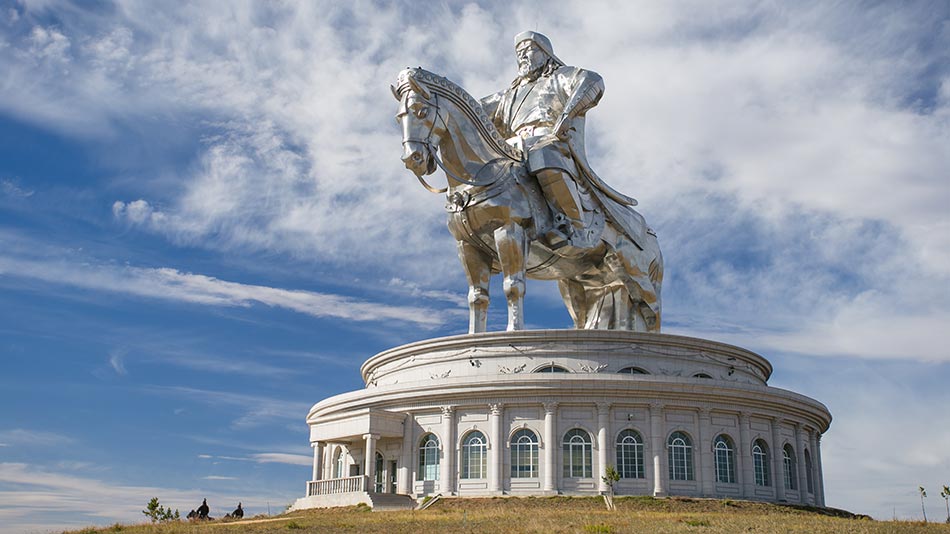
All Ministries to be involved for preparations for "Years to Visit Mongolia" www.montsame.mn
The government has announced 2023 and 2024 as the “Years to Visit Mongolia”. The Ministry of Environment and Tourism informs that within the framework of the project that will launch at the beginning of next year, all the ministries including all the relevant branches of digital communication, intercommunication, road, transportation, air transport and services will be involved in coordination.
The working sub-groups to ensure the preparations for the upcoming “Years to Visit Mongolia” were set up at the first meeting of the National Committee for Tourism Development headed by the Prime Minister. Specifically, coordination and participation of the Ministry of Foreign Affairs, Ministry of Road and Transport Development, Ministry of Culture, Ministry of Digital Development and Communications is needed.
The Ministry of Environment and Tourism emphasizes the need for all government ministries to support the tourism industry, starting with cultural promotion overseas.
Mongolia's tourism industry received a record-high 577,000 foreign tourists in 2019 and earned USD 607 million from the industry, which accounted for 6.4 percent of the GDP of 2019. During the COVID-19 pandemic, Mongolia received 58,000 in 2020 and 33,000 in 2021 respectively. Since Mongolia opened its border to foreign travelers in February 2022, it received 210,000 tourists and earned MNT 750 billion. The number of tourists this year is expected to reach 250,000 and the income to MNT 1 trillion.

MBCCI’s “Doing Business with Mongolia” seminar and business program. Jan 29-Feb 04. 2023. London, UK www.mongolianbusinessdatabase.com
Mongolian Business Database with the support of the British Embassy in UB and Mongolian-British Chamber of Commerce is starting to register the participant for “MBCCI’s Doing Business with Mongolia” seminar at Hogan Lovells London on the occasion of the 60th Anniversary of the diplomatic relations between the two countries and business program between Jan 29-Feb 02. 2023.
The delegates will visit the House of Commons by the special program and able to visit “Worlds Leading Wines London”, “Step Up Expo” (education),” Destinations The Holiday & Travel Show” international trade events in London during the period.
The MBCC (Mongolian-British Chamber of Commerce) is a not-for-profit membership organisation established in 2009 to foster strong business links between Mongolia and the UK. It aims to provide a professional and social environment for business people who wish to be introduced to, and become part of, the British-Mongolian business culture and community.
Contact: 99066062 and contact@mongolianbusinessdatabase.com
THE REGISTRATION WILL CLOSE ON NOV 18. 2022
...

Ground-breaking ceremony held for Museum of Tonyukuk the Wise www.montsame.mn
In 2018, an agreement was signed for the establishment of the Museum of Tonyukuk the Wise as part of the Development Cooperation Agreement between the governments of Mongolia and the Republic of Turkiye.
In accordance with the agreement, on November 2, a ground-breaking ceremony was held for the museum which will be built with a grant of USD 6.2 million from the government of Turkiye. The ceremony was attended by Minister of Culture of Mongolia Ch. Nomin, Minister of Culture and Tourism of Turkiye Mehmet Ersoy, President of the Turkish Cooperation and Coordination Agency (TIKA) Serkan Kayalar, Ambassador Extraordinary and Plenipotentiary of Turkiye to Mongolia Zafer Ates and other corresponding officials.
It is planned to build the museum on an area of 20 hectares within the 65.58 km2 protection zone of the memorial complex of Tonyukuk the Wise in the territory of Nalaikh District, Ulaanbaatar. A general plan for the construction of the museum, its accompanying buildings, a commercial service area, and a recreation area was developed.
As part of the cooperation agreement between the former Ministry of Education, Culture, and Science and TIKA, a project has been launched in 1994 to preserve, protect and restore the heritages of Turkic Khaganate in the territory of Mongolia.
Minister of Culture Ch. Nomin said, “In order to preserve and maintain cultural heritages, promote history and culture, and pass them on to future generations, the Mongolian government is carrying out a number of significant construction projects. The Ministry of Culture is developing a strategy to boost the economic impact of these programs. It should be mentioned that the establishment of the Museum of Tonyukuk the Wise in the Nalaikh district of the capital city is directly tied to the policy goals of protecting and preserving cultural heritage and promoting economic growth. In addition, the importance of the project is further enhanced by the fact that it creates a good experience for the development of other valuable cultural heritage preserved in every corner of Mongolia according to this standard.
Born of the Ashina noble family from which most powerful aristocrats and noblemen of the Turkic Khaganate originated, Tonyukuk the Wise lived between the years of 646 to 732. After serving as an advisor for Qapaghan Khan and Kutulug Khan, he continued to work under Bilge Khan until his death at the age of 86. The Turkic Khaganate (or the Gokturk Khaganate) was a ruling Empire in Central Asia in 552-745.
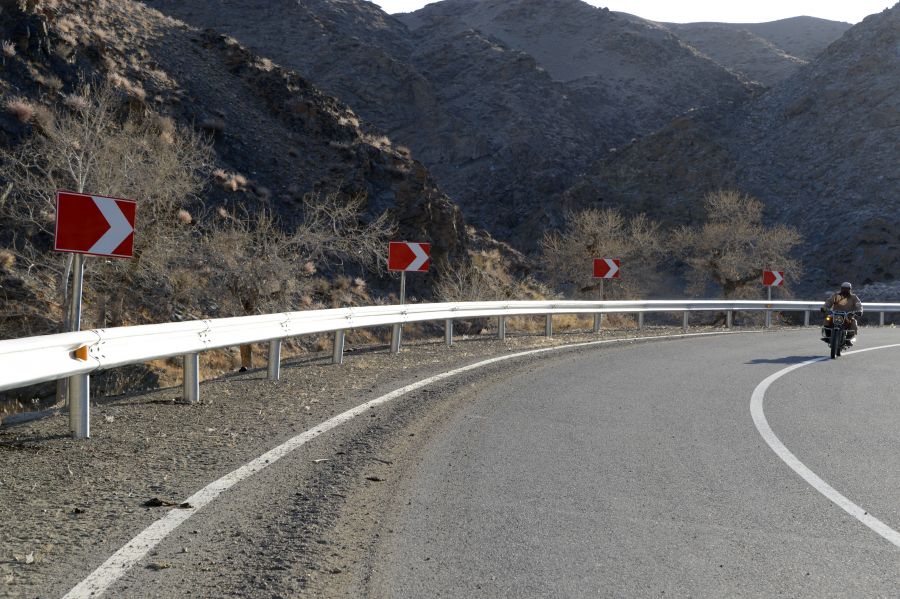
Preliminary feasibility study for construction of Altanbulag-Zamyn-Uud highway completed www.montsame.mn
On November 1, the 21st Meeting of the Council of Heads of Government of Member States of the Shanghai Cooperation Organization (SCO) was held virtually and chaired by Premier of the People’s Republic of China Li Keqiang.
Prime Minister of Mongolia L. Oyun-Erdene participated in the meeting and delivered remarks. Prime Minister Oyun-Erdene congratulated the Chinese Premier for holding the meeting successfully despite the challenging circumstances of the pandemic and the economic challenges brought on by international tensions. Then he expressed condolences over the tragic accident in the western Indian state of Gujarat, which resulted in the death of more than 130 people.
It was stated that Mongolia has been working to actively participate in the SCO's cooperation ever since it became the organization's first observer country in 2004.
Prime Minister Oyun-Erdene said that he is pleased that the meeting coincided with the day when the 745-km highway connecting Asia and Europe, an important component of the "Mongolia-Russia-China Economic Corridor", was put into operation.
According to him, Mongolia has been able to make use of its geographic advantage to create a transit corridor linking Asia and Europe and to support regional integration and trade. It was also announced by the Prime Minister that the preliminary feasibility study of the Altanbulag-Zamyn-Uud highway construction project connecting the three countries is ready and put forth his request to meet and discuss this matter with the authorities of China and Russia in the near future.
In the first ten years of its long-term development plan, Vision-2050, the Mongolian government is implementing a New Revival Policy under six sets of objectives. The objectives of the region's countries and the development strategies of China and Russia, which are neighbors, were taken into consideration when developing the policy. This policy is a thorough plan for partnerships that benefit the parties, built on the active involvement of foreign investors and businesses as well as regional nations, he added.
Prime Minister Oyun-Erdene emphasized that the government of Mongolia is devoting the construction of border checkpoint infrastructure and transportation logistics its full attention. He also invited the heads of government of the member states who participated in the meeting to work together on mutually beneficial economic projects within the framework of Mongolia’s New Revival Policy.
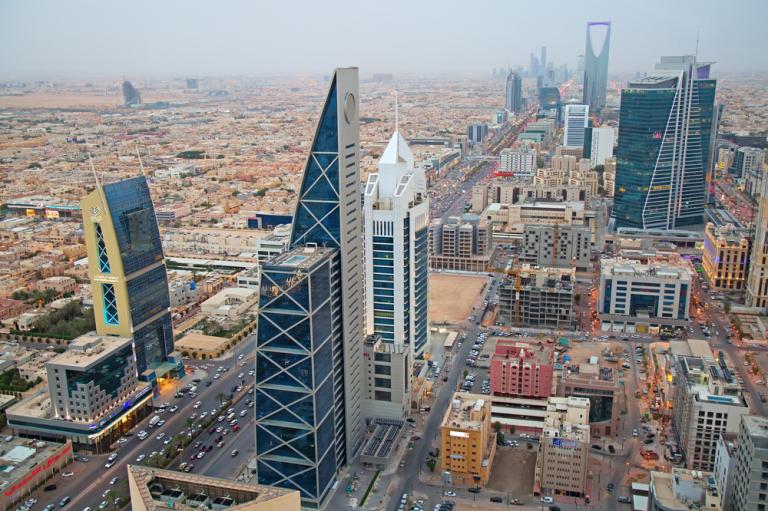
Saudi Arabia courts Australian miners for $170 billion plan www.bloomberg.com
Saudi Arabia is seeking investment from Australian miners to support its $170-billion plan to build a mining industry and diversify its oil-dependent economy this decade.
The kingdom says it’s sitting on top of $1.3 trillion worth of untapped mineral deposits including copper, zinc, phosphates and gold. Saudi Minister of Industry and Mineral Resources Bandar bin Ibrahim Al-Khorayef is in Australia this week to drum up investment interest.
Australian miners should “come, explore, do mining — the same as they are doing here”, he said in an interview on Tuesday in Sydney.
Saudi Arabia is pursuing a Vision 2030 project to reduce reliance on fossil fuels and embrace industries from mining to renewable energy and manufacturing. Of the $170 billion sought for mining, it envisages about 60% will come from private companies and the rest from state-owned entities.
Al-Khorayef said he had met with a number of smaller Austrlalian miners already, and hoped to meet bigger players such BHP Group Ltd and Rio Tinto Plc at a major mining conference in Sydney this week.
Saudi investors are “interested in this sector”, he said, but the country lacks domestic mining expertise and “you need to have partners who understand the sector quite well, and know how to utilize the resources.”
Junior miners
Saudi Arabia’s small mining industry is dominated by state miner Saudi Arabian Mining Co., commonly known as Maaden. The country should emulate Australia’s model of junior, private-sector miners that develop riskier and early-stage mines, the minister said.
“We feel it’s quite a good model for us to copy in Saudi, because we have a lot of young entrepreneurs who I’m sure many of them would be interested in the sector,” he said.
Battery metals such as lithium and nickel are already a focus for Maaden and Saudi Arabia, but the scale of resources is still unclear. Maaden said last year it would spend a “huge amount of money” in the coming two decades to explore for battery metals.
(By James Fernyhough)
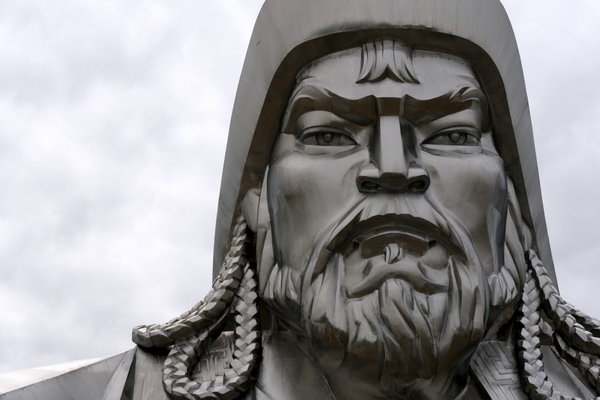
Chinggis Khaan’s deeds to be glorified due to upcoming Mongolia’s National Pride Day www.gogo.mn
This year, the birthday of Chinggis Khaan, Mongolia’s National Pride Day, is set to be celebrated on November 24, which is a non-working public holiday in Mongolia.
Mongolia’s National Pride Day has been celebrated as a public holiday since 2012. This year marks the 860th anniversary of the Great Khaan's birth. According to Presidential Decree No.4 dated January 9, 2012, the date of birth of Chinggis Khaan was made official based on the conclusions of the relevant working group and the scientific proposal, and it was determined to be the first day of winter months of the lunar calendar, and the day was designated as "Mongolia’s National Pride Day" to be celebrated.
On the occasion of upcoming Mongolia’s National Pride Day, educational institutions of all levels will organize work to glorify Chinggis Khaan’s deeds. In particular, the General Department of Education developed a guidance that preschool educational institutions shall teach songs, poems, and dances in praise of Chinggis Khaan’s childhood and historical merits in accordance with the age and mental characteristics of children, and general education schools shall teach songs and poems on historical topics and share videos to public.
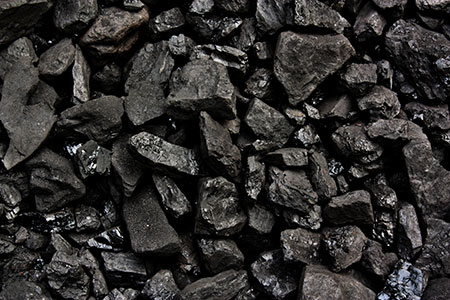
Mongolia increases rail coal transport fare by 20% www.sxcoal.com
Mongolia has increased its railway transport fares by 20-50% from November 1 after Ulaanbaatar Railway's proposals were accepted by the State Board of Trade and Industry, Mongolia's Medee reported.
Transportation tariffs on coal exports have increased by 20%, copper and zinc concentrates exports 20%, iron ore exports 15% and fluorspar exports 15% starting from November 1.
Besides, local and national passenger transportation fares have also increased by 50%, according to Medee.
Mongolia is also about to raise energy prices of enterprises as the sector is in a difficult situation, although the specific schedule has yet to be finalized.
The working capital needed by coal mines reaches 109 billion MNT, according to energy minister Choijilsuren Battogtokh.
The household electricity and heating price will not increase, but for enterprises, power prices within 500 TWh will increase 14% and prices of power exceeded 500 TWh will increase by 38%, according to Gogo Mongolia.
(Writing by Emma Yang Editing by Tammy Yang)
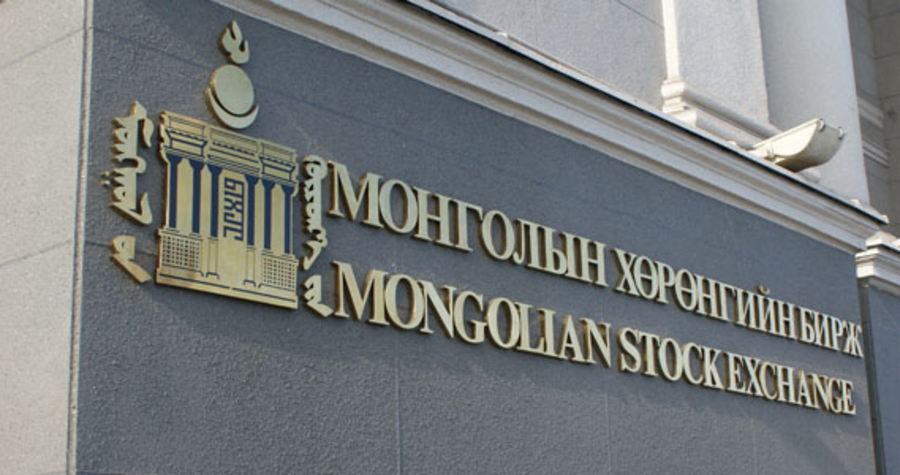
Mongolia to privatize the Mongolian Stock Exchange www.news.mn
Parliament and the cabinet have approved the plan to privatize the Mongolian Stock Exchange (MSE), fully state-owned since its inception in 1991. According to plan, the exchange can float up to 34% of its shares by the end of the year. The remaining 66% would remain in government hands, controlled by the Ministry of Finance.
Previous attempts to float shares of the MSE involved the London Stock Exchange Group but were never realized. In 2012, London helped the Mongolian bourse migrate to the Millennium IT trading platform. The pair later coordinated on other technology and regulatory development.
The exchange has a market cap of USD 1.6 billion and average daily trading of around USD 700,000.
The privatisation effort could help the stock market stabilise from its recent roller-coaster ride. Last year, the MSE rose 133%, easily the most of any stock exchange, but it went on to slump 18% this year.
- «
- 1
- 2
- 3
- 4
- 5
- 6
- 7
- 8
- 9
- 10
- 11
- 12
- 13
- 14
- 15
- 16
- 17
- 18
- 19
- 20
- 21
- 22
- 23
- 24
- 25
- 26
- 27
- 28
- 29
- 30
- 31
- 32
- 33
- 34
- 35
- 36
- 37
- 38
- 39
- 40
- 41
- 42
- 43
- 44
- 45
- 46
- 47
- 48
- 49
- 50
- 51
- 52
- 53
- 54
- 55
- 56
- 57
- 58
- 59
- 60
- 61
- 62
- 63
- 64
- 65
- 66
- 67
- 68
- 69
- 70
- 71
- 72
- 73
- 74
- 75
- 76
- 77
- 78
- 79
- 80
- 81
- 82
- 83
- 84
- 85
- 86
- 87
- 88
- 89
- 90
- 91
- 92
- 93
- 94
- 95
- 96
- 97
- 98
- 99
- 100
- 101
- 102
- 103
- 104
- 105
- 106
- 107
- 108
- 109
- 110
- 111
- 112
- 113
- 114
- 115
- 116
- 117
- 118
- 119
- 120
- 121
- 122
- 123
- 124
- 125
- 126
- 127
- 128
- 129
- 130
- 131
- 132
- 133
- 134
- 135
- 136
- 137
- 138
- 139
- 140
- 141
- 142
- 143
- 144
- 145
- 146
- 147
- 148
- 149
- 150
- 151
- 152
- 153
- 154
- 155
- 156
- 157
- 158
- 159
- 160
- 161
- 162
- 163
- 164
- 165
- 166
- 167
- 168
- 169
- 170
- 171
- 172
- 173
- 174
- 175
- 176
- 177
- 178
- 179
- 180
- 181
- 182
- 183
- 184
- 185
- 186
- 187
- 188
- 189
- 190
- 191
- 192
- 193
- 194
- 195
- 196
- 197
- 198
- 199
- 200
- 201
- 202
- 203
- 204
- 205
- 206
- 207
- 208
- 209
- 210
- 211
- 212
- 213
- 214
- 215
- 216
- 217
- 218
- 219
- 220
- 221
- 222
- 223
- 224
- 225
- 226
- 227
- 228
- 229
- 230
- 231
- 232
- 233
- 234
- 235
- 236
- 237
- 238
- 239
- 240
- 241
- 242
- 243
- 244
- 245
- 246
- 247
- 248
- 249
- 250
- 251
- 252
- 253
- 254
- 255
- 256
- 257
- 258
- 259
- 260
- 261
- 262
- 263
- 264
- 265
- 266
- 267
- 268
- 269
- 270
- 271
- 272
- 273
- 274
- 275
- 276
- 277
- 278
- 279
- 280
- 281
- 282
- 283
- 284
- 285
- 286
- 287
- 288
- 289
- 290
- 291
- 292
- 293
- 294
- 295
- 296
- 297
- 298
- 299
- 300
- 301
- 302
- 303
- 304
- 305
- 306
- 307
- 308
- 309
- 310
- 311
- 312
- 313
- 314
- 315
- 316
- 317
- 318
- 319
- 320
- 321
- 322
- 323
- 324
- 325
- 326
- 327
- 328
- 329
- 330
- 331
- 332
- 333
- 334
- 335
- 336
- 337
- 338
- 339
- 340
- 341
- 342
- 343
- 344
- 345
- 346
- 347
- 348
- 349
- 350
- 351
- 352
- 353
- 354
- 355
- 356
- 357
- 358
- 359
- 360
- 361
- 362
- 363
- 364
- 365
- 366
- 367
- 368
- 369
- 370
- 371
- 372
- 373
- 374
- 375
- 376
- 377
- 378
- 379
- 380
- 381
- 382
- 383
- 384
- 385
- 386
- 387
- 388
- 389
- 390
- 391
- 392
- 393
- 394
- 395
- 396
- 397
- 398
- 399
- 400
- 401
- 402
- 403
- 404
- 405
- 406
- 407
- 408
- 409
- 410
- 411
- 412
- 413
- 414
- 415
- 416
- 417
- 418
- 419
- 420
- 421
- 422
- 423
- 424
- 425
- 426
- 427
- 428
- 429
- 430
- 431
- 432
- 433
- 434
- 435
- 436
- 437
- 438
- 439
- 440
- 441
- 442
- 443
- 444
- 445
- 446
- 447
- 448
- 449
- 450
- 451
- 452
- 453
- 454
- 455
- 456
- 457
- 458
- 459
- 460
- 461
- 462
- 463
- 464
- 465
- 466
- 467
- 468
- 469
- 470
- 471
- 472
- 473
- 474
- 475
- 476
- 477
- 478
- 479
- 480
- 481
- 482
- 483
- 484
- 485
- 486
- 487
- 488
- 489
- 490
- 491
- 492
- 493
- 494
- 495
- 496
- 497
- 498
- 499
- 500
- 501
- 502
- 503
- 504
- 505
- 506
- 507
- 508
- 509
- 510
- 511
- 512
- 513
- 514
- 515
- 516
- 517
- 518
- 519
- 520
- 521
- 522
- 523
- 524
- 525
- 526
- 527
- 528
- 529
- 530
- 531
- 532
- 533
- 534
- 535
- 536
- 537
- 538
- 539
- 540
- 541
- 542
- 543
- 544
- 545
- 546
- 547
- 548
- 549
- 550
- 551
- 552
- 553
- 554
- 555
- 556
- 557
- 558
- 559
- 560
- 561
- 562
- 563
- 564
- 565
- 566
- 567
- 568
- 569
- 570
- 571
- 572
- 573
- 574
- 575
- 576
- 577
- 578
- 579
- 580
- 581
- 582
- 583
- 584
- 585
- 586
- 587
- 588
- 589
- 590
- 591
- 592
- 593
- 594
- 595
- 596
- 597
- 598
- 599
- 600
- 601
- 602
- 603
- 604
- 605
- 606
- 607
- 608
- 609
- 610
- 611
- 612
- 613
- 614
- 615
- 616
- 617
- 618
- 619
- 620
- 621
- 622
- 623
- 624
- 625
- 626
- 627
- 628
- 629
- 630
- 631
- 632
- 633
- 634
- 635
- 636
- 637
- 638
- 639
- 640
- 641
- 642
- 643
- 644
- 645
- 646
- 647
- 648
- 649
- 650
- 651
- 652
- 653
- 654
- 655
- 656
- 657
- 658
- 659
- 660
- 661
- 662
- 663
- 664
- 665
- 666
- 667
- 668
- 669
- 670
- 671
- 672
- 673
- 674
- 675
- 676
- 677
- 678
- 679
- 680
- 681
- 682
- 683
- 684
- 685
- 686
- 687
- 688
- 689
- 690
- 691
- 692
- 693
- 694
- 695
- 696
- 697
- 698
- 699
- 700
- 701
- 702
- 703
- 704
- 705
- 706
- 707
- 708
- 709
- 710
- 711
- 712
- 713
- 714
- 715
- 716
- 717
- 718
- 719
- 720
- 721
- 722
- 723
- 724
- 725
- 726
- 727
- 728
- 729
- 730
- 731
- 732
- 733
- 734
- 735
- 736
- 737
- 738
- 739
- 740
- 741
- 742
- 743
- 744
- 745
- 746
- 747
- 748
- 749
- 750
- 751
- 752
- 753
- 754
- 755
- 756
- 757
- 758
- 759
- 760
- 761
- 762
- 763
- 764
- 765
- 766
- 767
- 768
- 769
- 770
- 771
- 772
- 773
- 774
- 775
- 776
- 777
- 778
- 779
- 780
- 781
- 782
- 783
- 784
- 785
- 786
- 787
- 788
- 789
- 790
- 791
- 792
- 793
- 794
- 795
- 796
- 797
- 798
- 799
- 800
- 801
- 802
- 803
- 804
- 805
- 806
- 807
- 808
- 809
- 810
- 811
- 812
- 813
- 814
- 815
- 816
- 817
- 818
- 819
- 820
- 821
- 822
- 823
- 824
- 825
- 826
- 827
- 828
- 829
- 830
- 831
- 832
- 833
- 834
- 835
- 836
- 837
- 838
- 839
- 840
- 841
- 842
- 843
- 844
- 845
- 846
- 847
- 848
- 849
- 850
- 851
- 852
- 853
- 854
- 855
- 856
- 857
- 858
- 859
- 860
- 861
- 862
- 863
- 864
- 865
- 866
- 867
- 868
- 869
- 870
- 871
- 872
- 873
- 874
- 875
- 876
- 877
- 878
- 879
- 880
- 881
- 882
- 883
- 884
- 885
- 886
- 887
- 888
- 889
- 890
- 891
- 892
- 893
- 894
- 895
- 896
- 897
- 898
- 899
- 900
- 901
- 902
- 903
- 904
- 905
- 906
- 907
- 908
- 909
- 910
- 911
- 912
- 913
- 914
- 915
- 916
- 917
- 918
- 919
- 920
- 921
- 922
- 923
- 924
- 925
- 926
- 927
- 928
- 929
- 930
- 931
- 932
- 933
- 934
- 935
- 936
- 937
- 938
- 939
- 940
- 941
- 942
- 943
- 944
- 945
- 946
- 947
- 948
- 949
- 950
- 951
- 952
- 953
- 954
- 955
- 956
- 957
- 958
- 959
- 960
- 961
- 962
- 963
- 964
- 965
- 966
- 967
- 968
- 969
- 970
- 971
- 972
- 973
- 974
- 975
- 976
- 977
- 978
- 979
- 980
- 981
- 982
- 983
- 984
- 985
- 986
- 987
- 988
- 989
- 990
- 991
- 992
- 993
- 994
- 995
- 996
- 997
- 998
- 999
- 1000
- 1001
- 1002
- 1003
- 1004
- 1005
- 1006
- 1007
- 1008
- 1009
- 1010
- 1011
- 1012
- 1013
- 1014
- 1015
- 1016
- 1017
- 1018
- 1019
- 1020
- 1021
- 1022
- 1023
- 1024
- 1025
- 1026
- 1027
- 1028
- 1029
- 1030
- 1031
- 1032
- 1033
- 1034
- 1035
- 1036
- 1037
- 1038
- 1039
- 1040
- 1041
- 1042
- 1043
- 1044
- 1045
- 1046
- 1047
- 1048
- 1049
- 1050
- 1051
- 1052
- 1053
- 1054
- 1055
- 1056
- 1057
- 1058
- 1059
- 1060
- 1061
- 1062
- 1063
- 1064
- 1065
- 1066
- 1067
- 1068
- 1069
- 1070
- 1071
- 1072
- 1073
- 1074
- 1075
- 1076
- 1077
- 1078
- 1079
- 1080
- 1081
- 1082
- 1083
- 1084
- 1085
- 1086
- 1087
- 1088
- 1089
- 1090
- 1091
- 1092
- 1093
- 1094
- 1095
- 1096
- 1097
- 1098
- 1099
- 1100
- 1101
- 1102
- 1103
- 1104
- 1105
- 1106
- 1107
- 1108
- 1109
- 1110
- 1111
- 1112
- 1113
- 1114
- 1115
- 1116
- 1117
- 1118
- 1119
- 1120
- 1121
- 1122
- 1123
- 1124
- 1125
- 1126
- 1127
- 1128
- 1129
- 1130
- 1131
- 1132
- 1133
- 1134
- 1135
- 1136
- 1137
- 1138
- 1139
- 1140
- 1141
- 1142
- 1143
- 1144
- 1145
- 1146
- 1147
- 1148
- 1149
- 1150
- 1151
- 1152
- 1153
- 1154
- 1155
- 1156
- 1157
- 1158
- 1159
- 1160
- 1161
- 1162
- 1163
- 1164
- 1165
- 1166
- 1167
- 1168
- 1169
- 1170
- 1171
- 1172
- 1173
- 1174
- 1175
- 1176
- 1177
- 1178
- 1179
- 1180
- 1181
- 1182
- 1183
- 1184
- 1185
- 1186
- 1187
- 1188
- 1189
- 1190
- 1191
- 1192
- 1193
- 1194
- 1195
- 1196
- 1197
- 1198
- 1199
- 1200
- 1201
- 1202
- 1203
- 1204
- 1205
- 1206
- 1207
- 1208
- 1209
- 1210
- 1211
- 1212
- 1213
- 1214
- 1215
- 1216
- 1217
- 1218
- 1219
- 1220
- 1221
- 1222
- 1223
- 1224
- 1225
- 1226
- 1227
- 1228
- 1229
- 1230
- 1231
- 1232
- 1233
- 1234
- 1235
- 1236
- 1237
- 1238
- 1239
- 1240
- 1241
- 1242
- 1243
- 1244
- 1245
- 1246
- 1247
- 1248
- 1249
- 1250
- 1251
- 1252
- 1253
- 1254
- 1255
- 1256
- 1257
- 1258
- 1259
- 1260
- 1261
- 1262
- 1263
- 1264
- 1265
- 1266
- 1267
- 1268
- 1269
- 1270
- 1271
- 1272
- 1273
- 1274
- 1275
- 1276
- 1277
- 1278
- 1279
- 1280
- 1281
- 1282
- 1283
- 1284
- 1285
- 1286
- 1287
- 1288
- 1289
- 1290
- 1291
- 1292
- 1293
- 1294
- 1295
- 1296
- 1297
- 1298
- 1299
- 1300
- 1301
- 1302
- 1303
- 1304
- 1305
- 1306
- 1307
- 1308
- 1309
- 1310
- 1311
- 1312
- 1313
- 1314
- 1315
- 1316
- 1317
- 1318
- 1319
- 1320
- 1321
- 1322
- 1323
- 1324
- 1325
- 1326
- 1327
- 1328
- 1329
- 1330
- 1331
- 1332
- 1333
- 1334
- 1335
- 1336
- 1337
- 1338
- 1339
- 1340
- 1341
- 1342
- 1343
- 1344
- 1345
- 1346
- 1347
- 1348
- 1349
- 1350
- 1351
- 1352
- 1353
- 1354
- 1355
- 1356
- 1357
- 1358
- 1359
- 1360
- 1361
- 1362
- 1363
- 1364
- 1365
- 1366
- 1367
- 1368
- 1369
- 1370
- 1371
- 1372
- 1373
- 1374
- 1375
- 1376
- 1377
- 1378
- 1379
- 1380
- 1381
- 1382
- 1383
- 1384
- 1385
- 1386
- 1387
- 1388
- 1389
- 1390
- 1391
- 1392
- 1393
- 1394
- 1395
- 1396
- 1397
- 1398
- 1399
- 1400
- 1401
- 1402
- 1403
- 1404
- 1405
- 1406
- 1407
- 1408
- 1409
- 1410
- 1411
- 1412
- 1413
- 1414
- 1415
- 1416
- 1417
- 1418
- 1419
- 1420
- 1421
- 1422
- 1423
- 1424
- 1425
- 1426
- 1427
- 1428
- 1429
- 1430
- 1431
- 1432
- 1433
- 1434
- 1435
- 1436
- 1437
- 1438
- 1439
- 1440
- 1441
- 1442
- 1443
- 1444
- 1445
- 1446
- 1447
- 1448
- 1449
- 1450
- 1451
- 1452
- 1453
- 1454
- 1455
- 1456
- 1457
- 1458
- 1459
- 1460
- 1461
- 1462
- 1463
- 1464
- 1465
- 1466
- 1467
- 1468
- 1469
- 1470
- 1471
- 1472
- 1473
- 1474
- 1475
- 1476
- 1477
- 1478
- 1479
- 1480
- 1481
- 1482
- 1483
- 1484
- 1485
- 1486
- 1487
- 1488
- 1489
- 1490
- 1491
- 1492
- 1493
- 1494
- 1495
- 1496
- 1497
- 1498
- 1499
- 1500
- 1501
- 1502
- 1503
- 1504
- 1505
- 1506
- 1507
- 1508
- 1509
- 1510
- 1511
- 1512
- 1513
- 1514
- 1515
- 1516
- 1517
- 1518
- 1519
- 1520
- 1521
- 1522
- 1523
- 1524
- 1525
- 1526
- 1527
- 1528
- 1529
- 1530
- 1531
- 1532
- 1533
- 1534
- 1535
- 1536
- 1537
- 1538
- 1539
- 1540
- 1541
- 1542
- 1543
- 1544
- 1545
- 1546
- 1547
- 1548
- 1549
- 1550
- 1551
- 1552
- 1553
- 1554
- 1555
- 1556
- 1557
- 1558
- 1559
- 1560
- 1561
- 1562
- 1563
- 1564
- 1565
- 1566
- 1567
- 1568
- 1569
- 1570
- 1571
- 1572
- 1573
- 1574
- 1575
- 1576
- 1577
- 1578
- 1579
- 1580
- 1581
- 1582
- 1583
- 1584
- 1585
- 1586
- 1587
- 1588
- 1589
- 1590
- 1591
- 1592
- 1593
- 1594
- 1595
- 1596
- 1597
- 1598
- 1599
- 1600
- 1601
- 1602
- 1603
- 1604
- 1605
- 1606
- 1607
- 1608
- 1609
- 1610
- 1611
- 1612
- 1613
- 1614
- 1615
- 1616
- 1617
- 1618
- 1619
- 1620
- 1621
- 1622
- 1623
- 1624
- 1625
- 1626
- 1627
- 1628
- 1629
- 1630
- 1631
- 1632
- 1633
- 1634
- 1635
- 1636
- 1637
- 1638
- 1639
- 1640
- 1641
- 1642
- 1643
- 1644
- 1645
- 1646
- 1647
- 1648
- 1649
- 1650
- 1651
- 1652
- 1653
- 1654
- 1655
- 1656
- 1657
- 1658
- 1659
- 1660
- 1661
- 1662
- 1663
- 1664
- 1665
- 1666
- 1667
- 1668
- 1669
- 1670
- 1671
- 1672
- 1673
- 1674
- 1675
- 1676
- 1677
- 1678
- 1679
- 1680
- 1681
- 1682
- 1683
- 1684
- 1685
- 1686
- 1687
- 1688
- 1689
- 1690
- 1691
- 1692
- 1693
- 1694
- 1695
- 1696
- 1697
- 1698
- 1699
- 1700
- 1701
- 1702
- 1703
- 1704
- 1705
- 1706
- 1707
- 1708
- 1709
- 1710
- 1711
- 1712
- »






